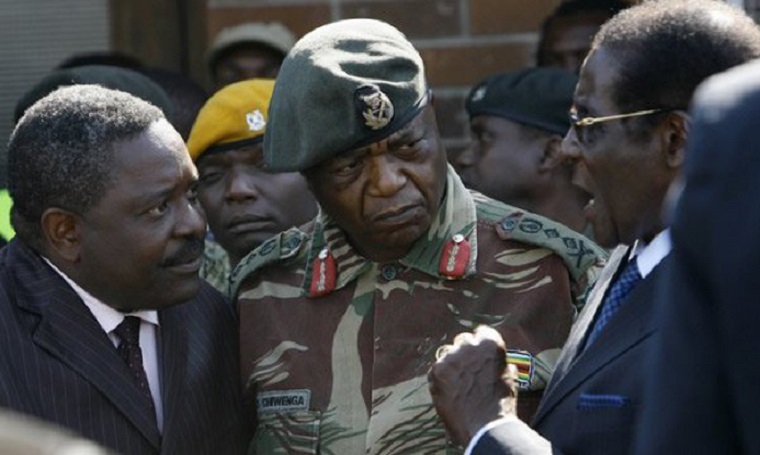Though President Robert Mugabe has told the military to stay in the barracks implying that they should stay out of politics, there can never be a coup in Zimbabwe as long as Mugabe is alive, so says an American academic, Alexander Noyes in the Washington Post.
Noyes, a senior associate at the Center for Strategic and International Studies, explains why.
He says Zimbabwe’s security sector serves the president.
The conventional narrative on Zimbabwe tends to overemphasize the strength of the security sector in the country’s politics. Zimbabwe’s military has actually long been subservient to Mugabe and his ZANU-PF party, he argues.
“In the dozens of interviews I conducted with Zimbabwean politicians from the ruling party, ZANU-PF, as well as from opposition parties, I found that the civil-military relationship in Zimbabwe has been mutually beneficial. These interviews also showed that while the military maintains political influence, Mugabe has always remained in supreme command,” he writes in the Washington Post.
Noyes says he was told by MDC leader Welshman Ncube: “No one has ever been in charge of ZANU-PF other than Mugabe … It’s a big chessboard, whether you are army, military, police, Mugabe is the chess player. Don’t be fooled.”
He argues that these findings are consistent with earlier research by Blessing Miles Tendi, a scholar at Oxford University. Tendi asserts that Mugabe has maintained civilian control over the military through shared ideology, patronage, and the formal and informal power he gets from his position as commander in chief and being the most senior remaining figure from Zimbabwe’s nationalist liberation struggle.
The other reason is that the military shares the President’s ideology.
“Mugabe and the senior echelons of Zimbabwe’s military share a nationalist liberation ideology wrought during the fight for independence from white rule during the 1960s and 1970s. Mugabe and ZANU-PF have carefully maintained and updated this ideology to fit changes in the political climate.
“In 2000, ZANU-PF faced its first real political threat in the rise of the Movement for Democratic Change (MDC) opposition party. In response, ZANU-PF linked resistance to imperialism in the 19th century to the war of liberation in the 1970s and the expropriation of white-owned land in the early 2000s to reward war veterans. This updated ideology promotes a view of Zimbabwe’s politics as a struggle between revolutionary ‘patriots’ (liberation war veterans) and ‘sellouts’ (the opposition).
“This ideology continues to run deep in the senior levels of Zimbabwe’s military. It is the glue that binds Mugabe to his generals and thereby lessens the likelihood of a military coup as long as Mugabe is president.”
Continued next page
(357 VIEWS)







0 Comments